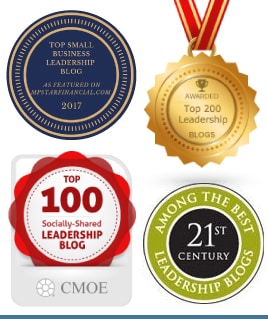I’m a real chicken when it comes to having tough conversations.
They are not something I look forward to…and I reckon most of you are with me on this.
My kids and I often play the game – “if we could have a superpower what would it be?”
My first choice is always to be able to read peoples’ minds. But I also think it would be quite handy to have a clone who could step in and have those difficult conversations for me.
You know the ones – where emotions run high and conflict is the name of the game. They involve telling somebody something they would rather not hear and you would rather not have to deliver.
In our professional lives, it might be a conversation about poor performance, redundancy, ethical dilemmas or bad news.
The thing is, ironically I have found when I face these tough conversations head on (instead of avoiding them) life is better in the long run.
Getting better at having tough conversations enhances leadership skills, builds respect, increases trust in our teams and generally oils the wheels of relationships and performance.
Here are 7 tips to help you get better at (and become more comfortable with) inevitable tough conversations:
1. Don’t avoid or delay them. Procrastination definitely ain’t the way to go. If there is an issue, don’t wait until it moves from a blip on the radar to a monumental, hyperventilating inducing development before you tackle it.
2. Prepare. It might be practicing with a trusted peer (a great one to discuss with your executive coach if you have one) or writing down what you really want to say/key messages before adjusting any highly emotive language.
Practicing helps to reduce anxiety and increase the likelihood of our key messages coming out the way we want them to be heard. An objective sounding board will check for soft soaping, dancing around the mulberry bush or conversely being too aggressive or confrontational.
3. Start with the heart. This is all about intent. Start from a place of respect and goodwill for the other person. Focus on desired outcomes and the intended relationship moving forward. Talk about what you would like to see happen, keeping any mutual goals and perspectives in mind.
Spending a bit of time before the conversation ensuring a positive and respectful mindset can make all the difference to how you come across.
Note: I know this can be difficult if you are really angry, and this is where talking it through with an impartial sounding board to get rid of some emotional charge can be helpful.
4. Be prepared for it to turn to custard. Being over optimistic is one of the traps that Holly Weeks refers to in her book, Failure to Communicate: Mastering Stressful Conversations With Balance and Skill.
The fact is, we can’t predict what will happen nor control the other person’s response. It could go swimmingly. Or it may not. So be prepared for a range of emotions from the other person.
Most importantly focus on what you can control, that is your own responses, words and actions. This might entail thinking ahead about your own triggers and the best tactics to respond.
5. Avoid highly emotive language. Saying “you are being a bully!” is more likely to make the other person defensive and less likely to hear you than a statement like – “if you could deliver your suggestions in a more collegial way versus a top down approach, I am more likely to hear your message and take it on board.”
6. Own your part in this situation. If this scenario involves conflict between you and the other person, acknowledge your contribution. If you were to take the stance that you were 51 % responsible for the stalemate, what different perspectives could this offer? If it’s tough feedback you have to give, see here for tips on how to give feedback.
7. Stay in relationship. Honour the connection and the conversation, not just the topic at hand. You can be brutally honest and compassionate at the same time.
For great books on this topic, read Crucial Conversations by Kerry Patterson, Joseph Grenny, Ron McMillan, Al Switzler and Failure to Communicate: Mastering Stressful Conversations With Balance and Skill by Holly Weeks.
And next time you find yourself putting off that conversation, don’t be chicken.
Do have any tips to add to the list above? I’d love to hear from you – please leave your comments below.







Reblogged this on Movers, Shakers, Leadership Makers.
Thanks Suzi, you always seem to be right on topic for me.
Hi Tanya, that’s great to hear, thanks for your feedback. Cheers, Suzi.
What a great list! Thanks for sharing resources for this. I’ve also found the book, Fierce Conversations by Susan Scott to be extremely helpful. And, perhaps another suggestion is to stay curious so you can understand the other person’s point of view.
Thanks Jamie. I really like your idea about staying curious to the other person’s point of view.